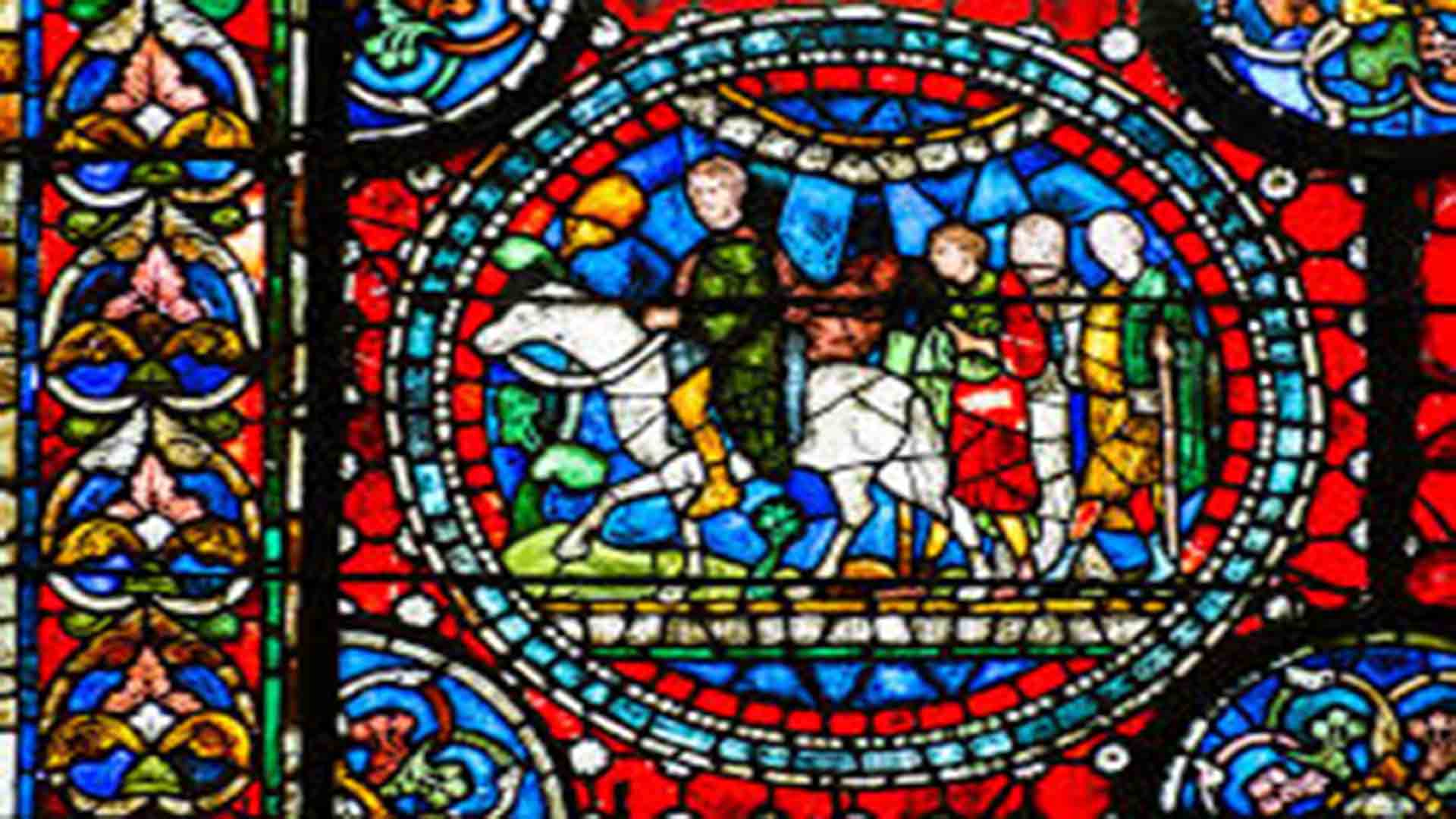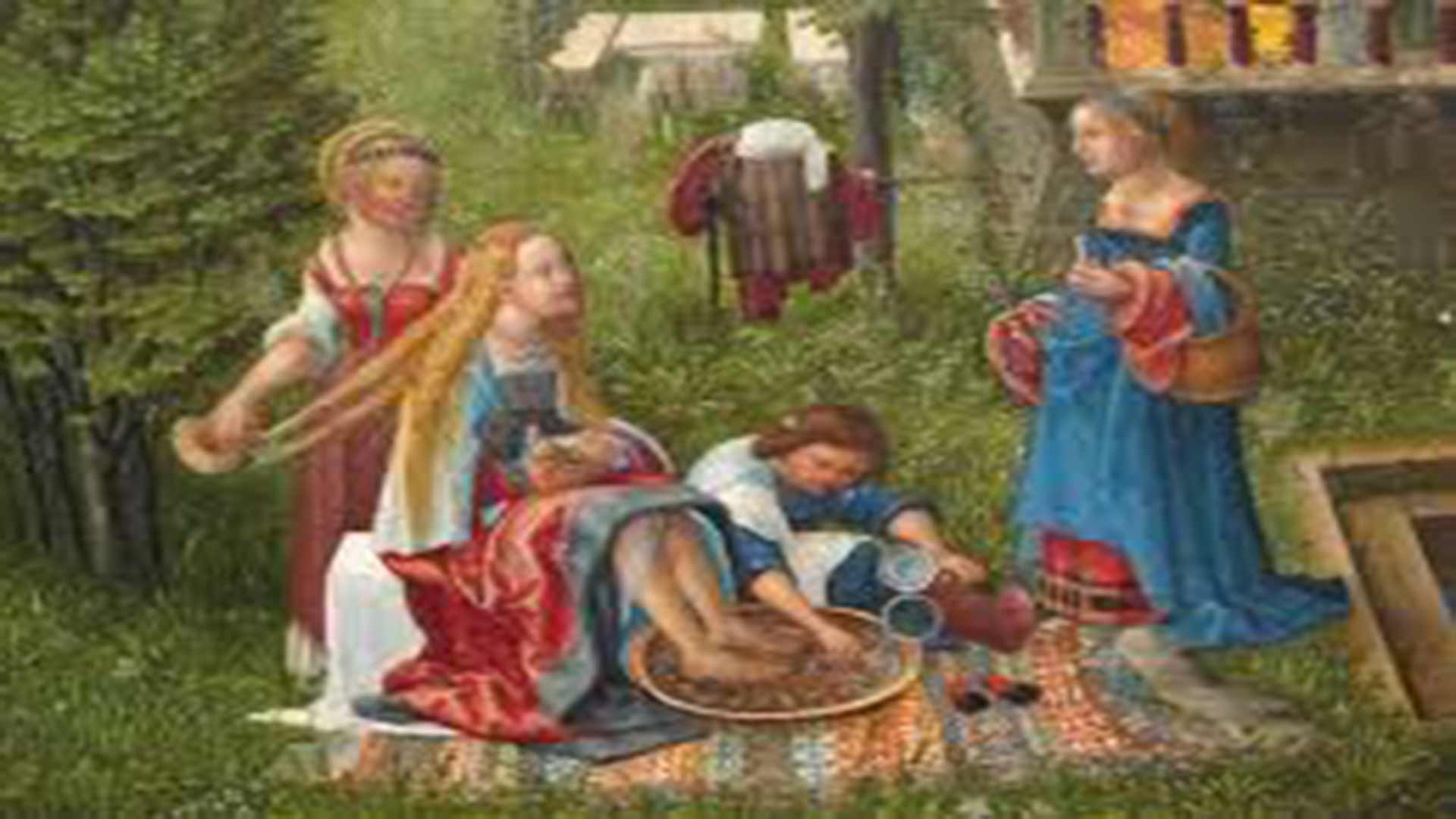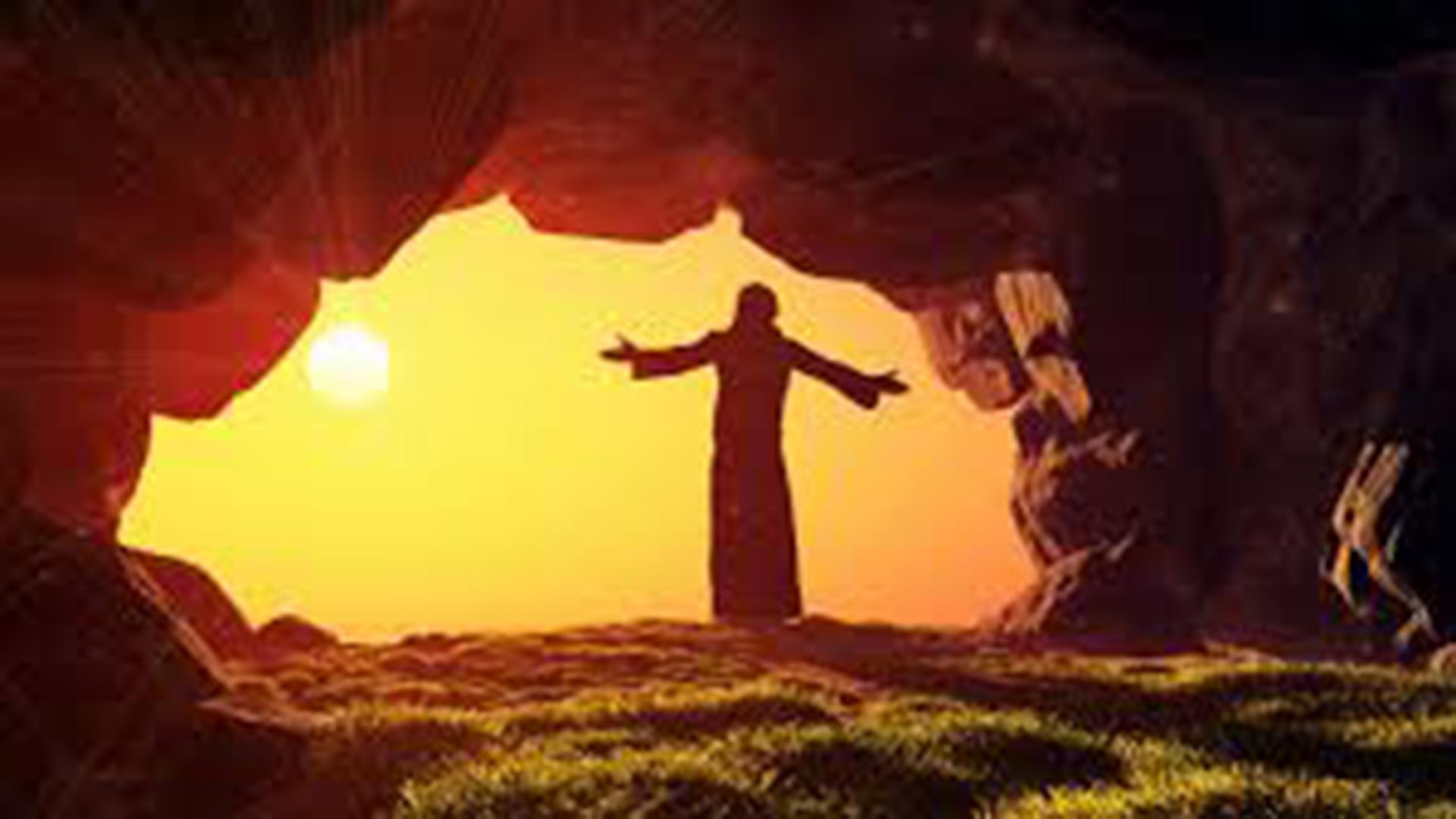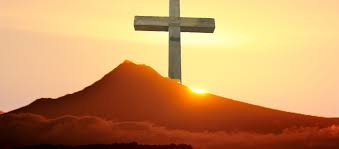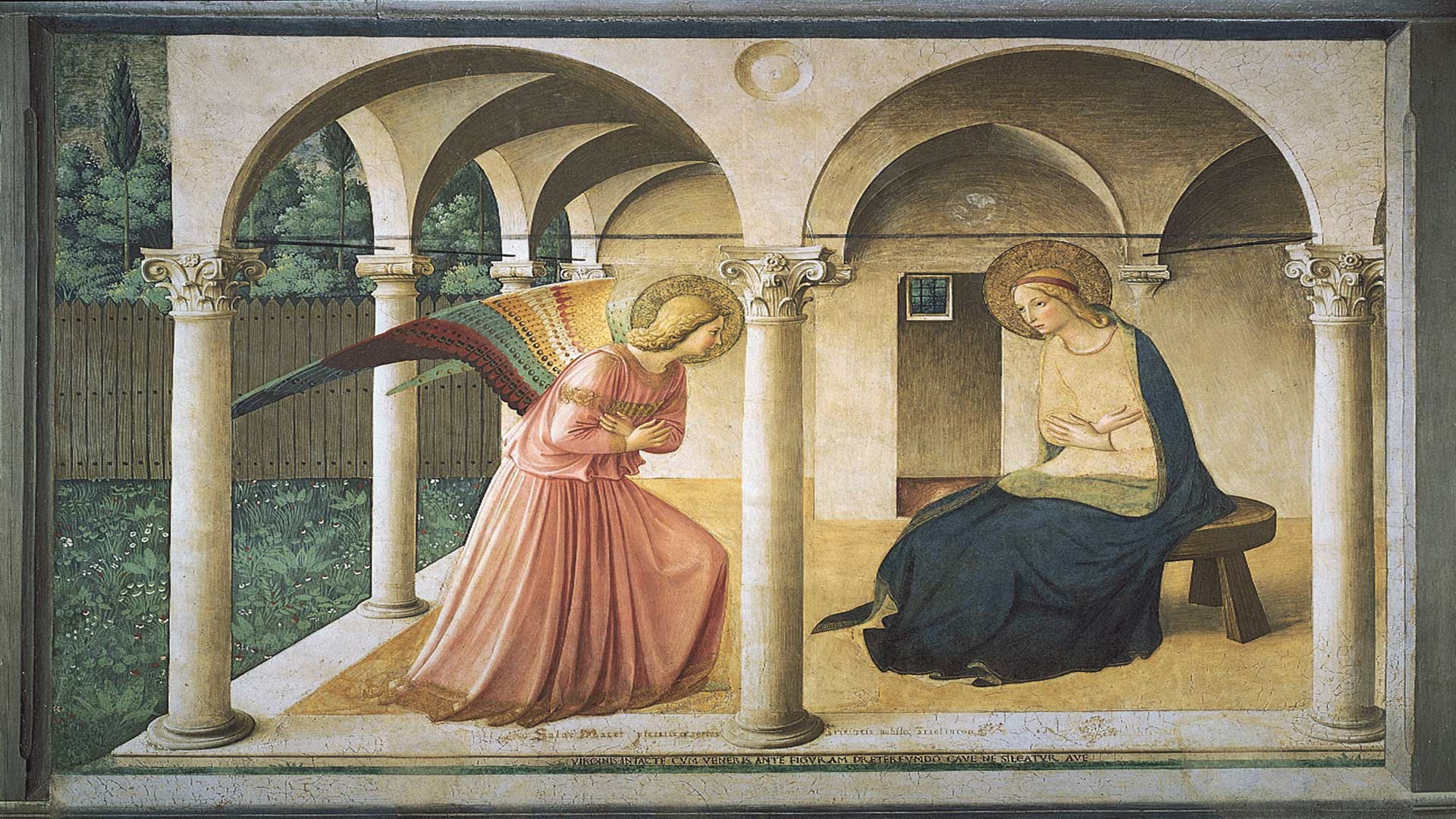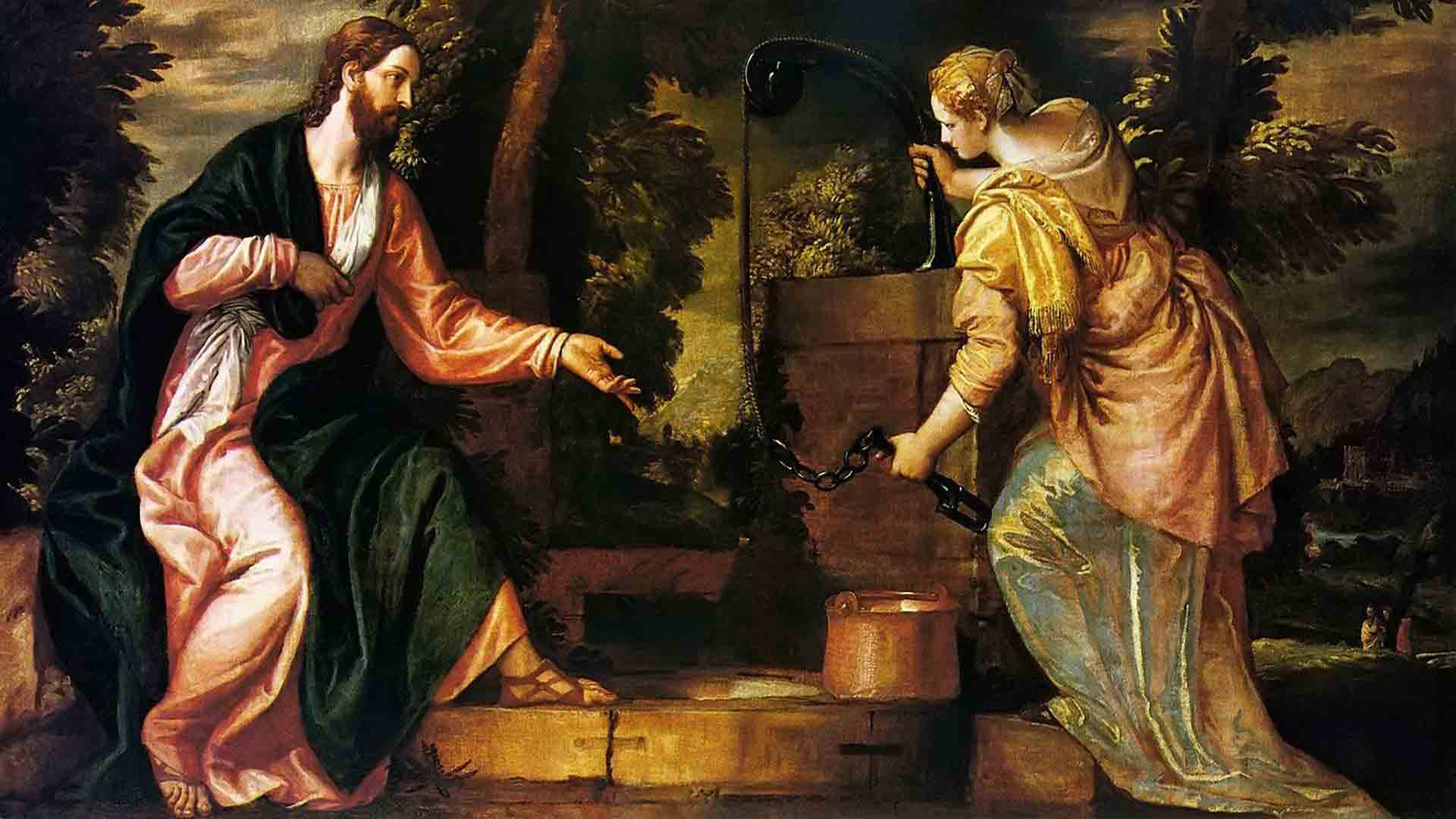We are on a pilgrim journey
LENT 2020 – Day 35
Readings: Num 21: 4-9; Ps 101: 2-3, 16-18, 19-21; Jn 8: 21-30
In the forty-year journey to the Promised Land, the Israelites remained in the wilderness longer than expected. They sometimes went round in circles. For example, when the people of Edom (bordering ancient Israel, now south-west Jordan) refused them passage, they took a route round the Moabite mountain. Since the place offered very little food and water, God gave them manna which they soon dubbed “worthless food”. God was indignant, and mortal reptile bites in that serpent-infested terrain were the punishment.
Interestingly, when Moses sought forgiveness on the behalf of his people, God commanded him to devise a bronze serpent. So what was God’s rationale? Wasn't this creature always known to be accursed above all others? Was He recommending a cult image? Obviously, the replica was harmless and meant to do good, just as Jesus Christ Himself, holy and harmless, would bear the weight of sin and save humankind. The serpent came to symbolise the Cross, and those of us who look upon the Crucified One acknowledge our sins and are saved (Jn 3: 14-17).
That’s precisely what today’s Gospel reading says: “When you have lifted up the Son of man, then you will know that I am He.” That's how Jesus went all out to make known His identity, using His Father’s typical self-introduction to Moses in the encounter of the burning bush: “I am who I am”. He also called Himself the Bread of Life; the Light of the World; the Door; the Good Shepherd; the Resurrection and the Life; the Way, the Truth and the Life; and the Vine – and He is who He is! It is as though a last effort to win the people over to His side before His death, which was imminent.
It is therefore imperative that we know our God. He never ceases to remind His people that He has created us to know Him, to love Him, to serve Him, and to be happy with Him for ever. Well, if we internalise all of this, our day-to-day suffering will cease to trouble us; worldliness will hardly attract us; and our “daily bread” will suffice and make us happy.... Aren’t we sometimes impatient like the Israelites on their way to the Promised Land? Don’t we seek quick-fix solutions to problems? Let not temptations assail us. We are on a pilgrim journey on earth; our real treasure lies in Heaven.
We live in glass houses
LENT 2020 – Day 34
Readings: Dan 13: 1-9, 15-17, 19-30, 33-62; Ps 22, 1-3a, 3b-4, 5-6; Jn 8, 1-11
Today’s first reading is one of the longest in the lectionary, and its tenor one-off. The amorous story is seemingly at variance with the mood of the Holy Week. It reads like a sensational story taken straight from the front pages of a newspaper or a racy novella. Except for the presence of a moral, for sure.
The reading talks of two men whom beauty has deceived and lust perverted the heart. As if that were not enough, the duo comprised elders of society who sinned by pronouncing “unjust judgements, condemning the innocent and letting the guilty go free.”
Prophet Daniel jumps into the arena to call their bluff. The law permitted this even if the accused were already on the way to their death. The two perverts were going to bear false witness, condemning a daughter of Israel without examining her and learning the facts, as the law prescribed. Daniel told them in no uncertain terms that the angel of God was waiting with his sword to saw them in two. Then all the assembly shouted loudly and blessed God, for they saw that God truly saves those who hope in Him. And, instead of Susanna, the two met their death.
Why this story? It belongs to the so-called Daniel cycle at Qumran and aims to contrast virtue and iniquity. It has a striking parallel in the Gospel story that shows Jesus perfecting the ancient Jewish law that overlooked the husband’s infidelity to his marriage vows.
Jesus cuts to the chase when the scribes and the Pharisees brought a woman caught in adultery. They demanded to know His opinion on the punishment she deserved as per the law of Moses. They were obviously laying a trap for Jesus. This would add to the string of accusations leading to His death. If he forgave her, He would be accused of going against the law. On the other hand, if He condemned her, they would accuse him of lack of mercy. They would even say that he had appropriated power that belonged to the Roman authority.
Hence, Jesus simply said: “Let him who is without sin among you be the first to throw a stone at her.” And they would have done so gladly and shamelessly. Meanwhile, Jesus began to write names of the male accusers guilty of the same crime. Slowly, they went away, one by one, beginning with the eldest. Then Jesus turned to the woman, and said, “Go, and do not sin again.”
Jesus did not close His eyes to the woman's sin. He commanded her not to sin again. He cornered the men, convinced that they should not go scot-free by virtue of their gender. The law of God applies equally to all. But alas, human nature is such that very often those in authority, the elders and the so-called wise, pervert and corrupt the minds of the unwary. They bear false witness – something so common even in legislatures and courts today – and have no qualms about meting out the severest punishment to the innocent. After all, wasn’t Jesus Himself the worst victim ever of most monstrous faults in a purported justice system?
To victims of atrocities the Psalm addresses a comforting answer: “If I should walk in the valley of darkness no evil would I fear, for you are there.” It is not that we should take things lying down. We have to be firm and to act, convinced meanwhile that “the Lord is my Shepherd.” He is always there. He always makes His presence felt at the most unexpected moments.
Let, therefore, the prayer on our lips always be, “Your words, Lord, are spirit and life, You have the words of eternal life.” (Jn 6: 63)
See what God alone can do...
LENT 2020 – Day 33
FIFTH SUNDAY OF LENT
Readings: Ez 37: 12-14;Ps 129, 1-2, 3-4, 5-6, 7-8; Rom 8, 8-11; Jn 11, 1-45
Ezekiel is yet another prophet that points to the final purpose of life. He was the spiritual guide of his fellowmen in Babylon. Today’s reading from his Book is only a small part of his vision of the dry bones belonging to the Israelites in exile. God promised that He would bring them to life and back to their land. Here He wished to build a new community of believers in the true God. Ezekiel is thus a prophet of the exiles, whom he gave hope.
What do the dry bones restored to life represent? The image points to the restoration of the people of Israel and to the final resurrection. Jesus Himself gives us a preview of this, “so that we may believe” in the power of God…. When He promised to raise Lazarus, sisters Martha and Mary thought it was the “resurrection at the last day” that Jesus was referring to. After declaring “I am the resurrection and the life…” Jesus actually raises Lazarus who had died four days earlier. For sure, Lazarus died one day; meanwhile Jesus had made an important point: He gives us the life of the spirit and guides us to the final resurrection.
Everyone present there saw what the “glory of God” truly meant but did they all believe in Him? No. In fact, they killed Him… He died, yes, but rose again, victorious against death. This life-filled message St Paul reiterates when he says, “If the Spirit of Him who raised Jesus from the dead dwells in you, He who raised Christ Jesus from the dead will give life to your mortal bodies…”
The readings of today will be less overwhelming when applied to our daily life. As believers, we must die to our old selves and rise again. By putting to death our evil deeds, we get to focus on the glorious promises of God. The sacrament of Confession gives us the grace to realise that our present life is not everything and that in the death of the body we don’t lose everything. There is the eternal life of the spirit – the final purpose we were always destined for.
He pulls us back from the brink
LENT 2020 – Day 32
Readings: Jer 11: 18-20; Ps 7: 2-3, 9-10, 11-12; Jn 7: 40-52
There’s a sense of urgency in the readings of today. The second major prophet, Jeremiah, registers the first of his notable confessions. He describes his sufferings and anxieties vis-à-vis the mission he has to fulfil. The Lord lets him know the enemy traps, in the wake of his vehement discourse in the temple. And much as his countrymen misunderstand him about divine punishment that is imminent, Jeremiah expresses his hope in God.
The Gospel indicates that Our Lord’s Passion is round the corner. There is an air of suspense, particularly since there is a striking division in public opinion. The people, the officers commissioned to arrest Jesus, and even Pharisee Nicodemus side with Jesus. They declare that no man has ever spoken like Him before, and insist that he deserves a fair trial.
The rest of the authorities, however, would hear nothing of that. They accused the crowd of ignorance of the law. But it is clear that they who claimed to know the law had conveniently suppressed the fact that Jesus was indeed the Messiah. Their intention was to simply eliminate Jesus; He was a thorn in their side.
Even in our time, don’t people sideline those who speak the truth? Don’t these suffer for upholding their principles? Evil-mongers hate them because they, even if unknowingly, destroy their designs. That is how fallen human nature is; there is no escape. Nonetheless, we must speak, tactfully, which doesn’t mean feebly. Above all, we have to trust in the Lord, saying, “Lord God, I take refuge in You.” He died in order to save us; He always pulls us back from the brink.
Waiting in expectation
LENT 2020 – Day 31
Wis 2: 1a. 12-22; Ps 33: 16-18, 19-20, 21.23; Jn 7: 1-2.10.25-30
How else was Jesus to convince the people of Israel that His was a divine message of salvation? A century earlier, King Solomon had foreseen that “a righteous man” would be dubbed “inconvenient”, put to the test and condemned to a shameful death.
The wise king had drawn from the Wisdom literature and the Book of Isaiah. Notice how accurate the preview he gives us of Christ’s life and Passion. What other proof does one require for our Lord’s divine origin?
When He realised that the Jews of Judea were seeking to kill Him, Jesus restricted himself to Galilee, in a sort of lockdown. Nothing, however, would prevent Him from calling a spade a spade when the need arose. When he went to the old, Mosaic feast of Tabernacles in Jerusalem, he preached openly, inviting the people to the Living Water. This was his mission on earth. None laid hands on Him; His hour had not yet come.
The hour is of the essence, though we know not when it will come. Hence we have to stay calm and be prepared, for “the Lord ransoms the souls of his servants.” There is no better way than the present global crisis that surrounds us to understand what it means to be “prepared”....
Delighted with the faith we profess
LENT 2020 – Day 30
Ex 32: 7-14; Ps 105: 19-20, 21-22, 23; Jn 5: 31-47
Moses brought his people out of the land of slavery and they soon became complacent. They turned away from the Lord's commands. Their state of corruption provoked divine wrath. However, God heard Moses' plea for mercy, and this changed the course of history.
God in His compassion sent His only Son into the world with Good News for the people of Israel. But the teachers of the law and the leaders of society saw Jesus as a stumbling block, a threat to their established power and position. They chose not to recognise His divine origin and they rejected His message. Meanwhile, the people continued to live the sordid ways of the world. This was so pathetic that Jesus, who was otherwise subtle in revealing His identity, virtually spelt it out for them. He reminded them that both Moses and, more recently, John the Baptist had come to prepare the way for Him, but to no avail.
It was the same old story of the prophet rejected in his own country…. Alas, such is fallen human nature that we throw away the precious jewels we possess and hanker after trinkets…. We have the water of eternal life but seek water that makes us thirst....
Yes, it is the same old story with our generation as well. How often we forget our Christian identity and yearn to become something else. Are we, then, in any way different from the people of Israel who “exchanged the God who was their glory for the image of a bull that eats grass”?
It is perhaps even more pertinent to ask: Do we feel truly blessed about our baptism in the Catholic faith? Are we grateful to our ancestors who put their past behind them and embraced a new faith that they recognised as truly divine?
As we approach the Paschal mystery, let's remember that we can be either for Christ or against Him; there is no intermediate position.
God still loves the world...
LENT 2020 – Day 29
FEAST OF THE ANNUNCIATION
Is 7: 10-14; Ps 39:7-8a, 8b-9, 10-11; Heb 10: 4-10; Lk 1: 26-38
In the midst of the austerity of the Lenten season, there comes a text which has the freshness of morning dew: “Behold, a young woman shall conceive.” It is Isaiah (7th century before Christ) speaking to the faithless king Ahaz of the House of David. It is one of the most celebrated of the Biblical texts. Taken from the Book of Consolation or Book of Emmanuel, it is so called because God consoles His people. He promises them liberation from Babylon and the arrival of a Messiah.
When it was finally time for the prophecy to come about, the Angel Gabriel announced to the Virgin Mary: “Behold, you will conceive in your womb and bear a son.” Do we appreciate Mary's predicament well enough? As we know, that reserved maiden responded positively to God’s call. She always delighted in His law and discerned his ways. In her quiet way, she proclaimed the wonders of the Lord, His love and His truth.
It must have been truly consoling to know that God-With-Us would walk the earth. He would make known to mortals the plan of Salvation. The people had a lot to atone for, but animal sacrifice was not the solution. Hence Jesus Christ offered Himself up as a sacrifice, to take away sins and sanctify humankind “once and for all”.
“Once and for all” is not to be taken as licence to breach God’s law and yet expect to be saved. We can well lose our salvation if we wilfully go back on it. Let’s therefore take the safest path: to emulate Mary in her qualities of faith, humility, trust, obedience, piety, thoughtfulness, discernment, perseverance grace, holiness. She is a sea of virtue and the surest way to Our Lord Jesus Christ.
On the Feast of the Annunciation of Our Lord’s Incarnation, let us very especially keep in mind all expectant mothers. For sure, in their motherly love they will make little of these sombre times, for every baby that comes into the world brings the good news that God still loves the world.
Come to the spring of living water
LENT 2020 – Day 28
Readings: Ezek 47, 1-9.12; Ps 45, 2-3, 5-6, 8-9; Jn 5, 1-3, 5-16
In that enigmatic passage from the prophet Ezekiel, Water is a dominant image: “water issuing from below the threshold of the temple.” The Angel takes the prophet on a guided tour of the temple; and the more they go round the more they get immersed in those waters. Nonetheless, the water image spelled hope for a land that suffered from drought. It was God's promise to His people in exile in Babylon, an invitation to return to their land.
In the present days, never mind the grim picture of Covid-19, we too see signs of God healing and restoring the environment following the global slowdown. The physical environment apart, for us who belong to Christ it is the spiritual environment that we regard as decisive. It is therefore significant that Ezekiel’s vision points to none other than Christ as being that Temple. In fact, Christ is the spring of living water, who said, “Whoever believes in me… out of his heart shall flow rivers of living water” (Jn. 7, 38). It’s a grace He gives us at the baptismal font, but which by and by we sully with sin.
That is precisely why we need the Master Physician. Look at the marvels He performed at the pool by the Sheep Gate. In it lay a multitude of invalids, blind, lame, paralysed. They hoped that the waters “stirred” by the Angel would heal them. Meanwhile, Jesus cured the lame man, and went His way, but the cure stirred up a hornet's nest since that day was the Sabbath.
Now compare the Jewish protocol with the new one established by Him who came to perfect the law. The Jews bided their time to find fault and accuse others whereas Jesus opened up new horizons. He was keen on saving the people from physical and spiritual illnesses.
The relation between the two readings is now evident. We have to put all those vicious minds in our midst, those “stagnant waters of the sea”, behind us and go ahead and immerse ourselves in the living waters that spring forth from Jesus, our Lord and Saviour.... “Come, consider the works of the Lord, the redoubtable deeds He has done on the earth.”
Ask not what our God can do for us...
LENT 2020 – Day 27
Is 65, 17-21; Ps 29, 2.4, 5-6, 11-12a. 13b; Jn 4, 43-54
God is not a politician; He keeps his word. However, we do not keep our word for we have become worse than that breed. What Isaiah prophesied would have become a reality if Israel had responded in earnest. Unfortunately, the Chosen People paid only lip service to God, as politicians do to their voters. For His part, God again and again invited them with love and promise – “not more shall be heard the sound of weeping and the cry of distress”, and He would graciously and mercifully forget their past offences. But they rejected the covenants and even the Son of God when He came down from Heaven.
“Not more shall be heard the sound of weeping and the cry of distress”: wouldn’t that be music to our ears in the present days of the Covid-19 pandemic? Well, nothing is impossible with God. He can create new heavens and a new earth; or at the end of the world, He might even leave the material planet untouched and therein simply place an entirely new race.
Meanwhile, why can’t we be that new race? What are we lacking in? We have the promise of God’s help; we only need to respond favourably. He has given us innumerable signs; we have only to acknowledge them humbly, as did the Galileans, after they saw all that Jesus had done in Jerusalem. In fact, they’d earlier witnessed His first miracle – the changing of water into wine – in Cana of Galilee. And now He healed the son of an official who entreated Him with faith; He did not put up His price, like the politicians do.
The world would be a better place had we accepted Jesus with all our heart. Even impostors enjoy acceptance whereas an authentic prophet has no honour in his own country. Similarly, we are ever-ready to receive blessings from the Lord. When will we begin to give Him of ourselves?
Here's how to move from darkness to light
LENT 2020 - Day 26
Sam 16, 1. 6-7, 10-13; Ps 22, 1-3a, 3b-4, 5, 6; Eph 5, 8-14; Jn 9, 1-41
Samuel thought God had meant Jesse’s eldest son Eliab to be the new king of Israel, for he had great physical attributes; God told him that “the Lord sees not as man sees; man looks on the outward appearance, but the Lord looks on the heart.” What a lesson! When Samuel saw David, who had been out keeping the sheep, the Lord’s words “This is he!” were a confirmation that Jesse’s youngest son was meant to shepherd Israel.
King David became the luminous author of that familiar and most loved Psalm 23, among many others. Of course, given his background, it is in pastoral lingo that he expresses his serene conviction that the Lord is his Shepherd. The assurance that the Lord guides and protects us from every danger; that there is nothing we shall want, so nothing to fear, has always brought and will continue to bring solace to many a troubled soul.
Jesus is a descendant of the same David who wrote “If I should walk in the valley of darkness, no evil would I fear.” And there comes St Paul with these eye-opening words: “Once you were darkness, but now you are light in the Lord.” He exhorts us to walk as children of the light – lovers of the good, the right and the true – a veritable priesthood. “I am the light of the world, says the Lord; he who follows me will have the light of life.”(Jn 8,12) That’s a promise.
The Gospel of today is a practical illustration of how Jesus brings us out from the darkness to the light. He doesn’t look at our worldly learning but at our faith and trust in Him. Proof of this is that while the blind man became “enlightened” (so his blindness was not really a punishment for any previous sin, it was indeed a glorious way of manifesting God’s works), the proud Pharisees and others were gradually sinking into greater darkness – they’d refused to believe, or even plainly accept, so were blinded by the bright Light of the World.
